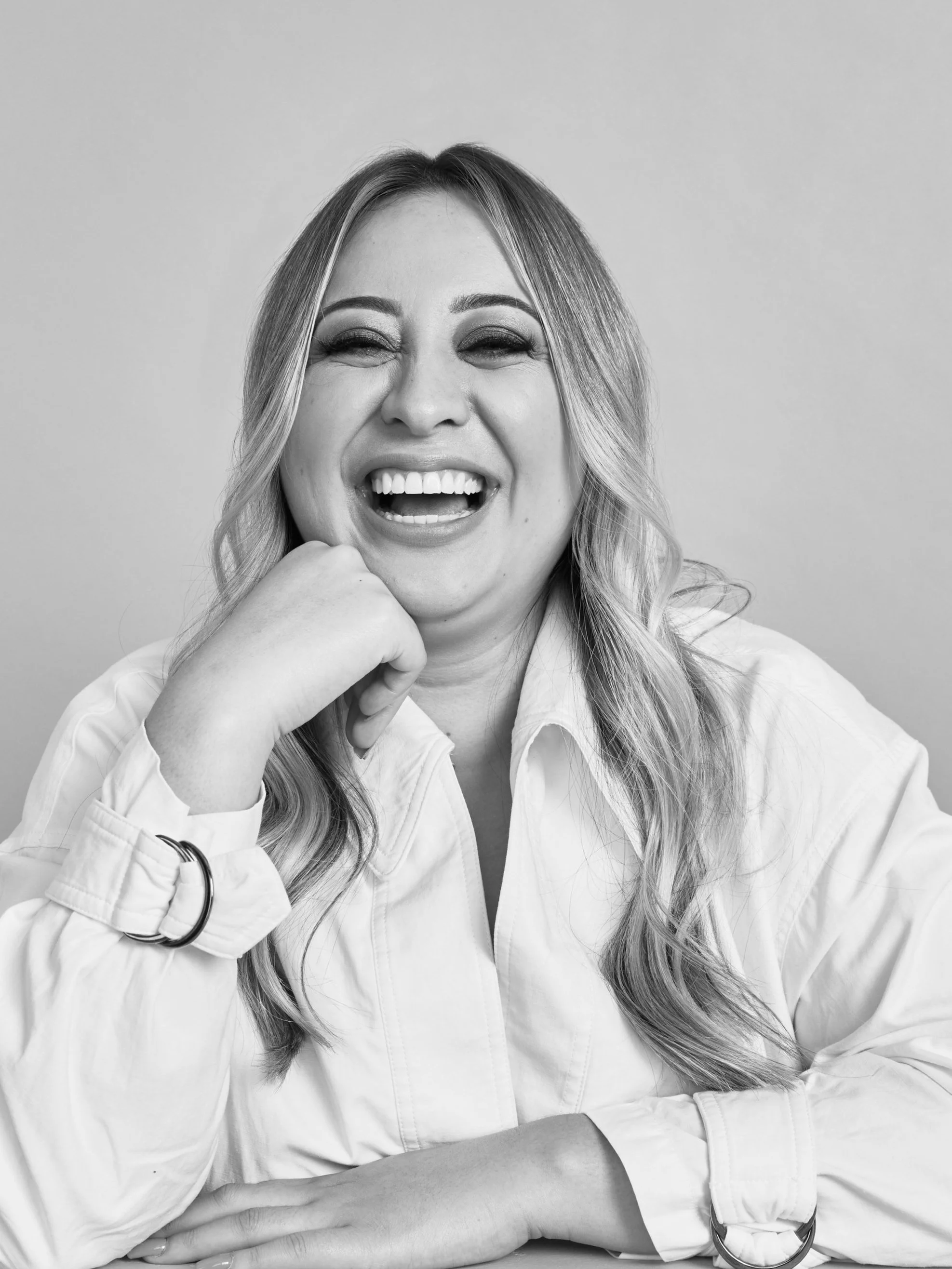Sarah Colcord On Building An Inclusive Grassroots Business Community In The Pacific
Sarah is the founder of Chooice, NZ’s largest Facebook Group and biggest small business marketplace.
Since its launch in 2020, Chooice has helped thousands of local creators and artisans on the platform generate over $6 million dollars in sales. Sarah was recently named the Global Entrepreneurship Network’s NZ Social Entrepreneur of the Year.
Sarah discusses reigniting connections between small businesses in Aotearoa, helping consumers shift their purchasing behaviour and ripple effects she is observing within the business community at a grassroots level.
Highlights from the interview (listen to the podcast for full details)
[Sarah Ripper] - To start off, could you please share a little bit about your background and what led you to where you are today?
[Sarah Colcord] - I am a young Polynesian woman here in New Zealand, Aotearoa. I like to say that I've done a lot of things in my very short life. I have a background in community development, youth work and politics. I have become a full-fledged businesswoman and pretty much thrown myself in the deep end of social entrepreneurship, the business world and tech space. Today I find myself as the CEO and Founder of a marketplace here in Aotearoa called Chooice, which I launched from my bedroom during COVID-19, at the height of the pandemic when New Zealand first went into lockdown. I’ve experienced this crazy journey of business and technology.
As the founder of Chooice, can you share what you're doing there with your team and the impact you’re generating?
Chooice is an e-commerce marketplace where small businesses, whether those are run by local artisans, creators, or crafts people can come on our platform and set up a storefront, list their products and get themselves online as quickly and easily as possible. This helps them to start selling, which is a huge problem for a lot of our small businesses who aren't too tech savvy and would usually need to invest quite a lot of funds they don’t have in a full-fledged website. They just need to get themselves online to be able to compete in that digital space and the digital economy. That's what Chooice is, we're an e-commerce marketplace where they can get a turnkey e-commerce solution pretty much straight away to start selling immediately.
Since our launch in 2020, we've seen some incredible numbers. We have over 3,000 vendors or small businesses on our platform. We've had over 200, 000 products sold through our platform; that has generated over six million dollars for these small Kiwi businesses, which has made a huge difference in the lives of a lot of them.
Pretty incredible numbers if I could say so myself.
What shift have you observed for both the small enterprises and customer base? Have there been any interesting shifts in perceptions or behaviours because of Chooice starting up in New Zealand?
We're finding a lot of our vendors who use Chooice have developed a huge sense of community and belonging on our platform, something they couldn't find previously on other platforms, which to us is beautiful. We have our e- commerce website, but we've also got New Zealand's largest Facebook group working alongside our website platform. We've got over half a million people in this Facebook group, and for our vendors, this provides a sense of belonging and a place to connect with consumers and find loyal shoppers. For our shoppers on the other hand, this community has provided a way for them to connect with local artisans, who might be their neighbour up the road they didn't realise were making and selling shampoo or soap out of their home. What I've observed and seen is a huge community we've been able to build for both shoppers and sellers.
You mentioned you were a politician; how did that happen and what did that experience teach you?
I was 19 at the time; I had finished high school and at that point was already three years deep into doing community and volunteer work locally. I reached a point where I decided there must be more for me to do in this space, because I love working at the grassroots level but also wanted to make a wider, deeper impact. For me that was in policies on the council level. When I was 19, I ran in the local elections and by the time I was elected I had just turned 20.I entered politics as a fresh faced 20-year-old in 2016. I spent three years there, so I did one term in what we call Auckland Council. It was exhausting, but so worth it. A lot of learnings and lessons came out of that time, as you would expect with a 20-22-year-old politician. After that, it was on to the next thing for me. It was an incredible time, and I am very proud of the impact I was able to make during that short period.
What inspiring projects or initiatives have you come across recently that are creating a positive social change?
In terms of Chooice, we've seen some awesome success stories. One that always sticks with me, and I love talking about is this mother and daughter duo based in Auckland, New Zealand. They originally were at the farmers market every weekend, and it wasn't until they promoted themselves on Chooice they got out of the farmer's market and are now finding their products are in Countdown supermarkets. In Australia you would know them as Woolworths, but Countdown supermarkets are across our whole country, which is awesome. They love to share that story, the story of without Chooice they would still be at the farmer's market. We love to hear those stories, but we also love to say that this is what we live for. This is our bread and butter, to see our small artisans, those people at farmers markets go beyond that and become successful household brands and names.
I'm a little bit biased because she's a good friend of mine, but I think I will mention Eteroa and her co-founder Julia. They are doing incredible work and run an organisation here in New Zealand called Fibre Fale. They've only been around for a year now, but the impact they've had in the digital equity space has been phenomenal.
They exist to bridge the digital divide here in Aotearoa around Māori and Pacific people’s access to technology. They create pathways into the digital tech space, and there is obviously a huge need for this work to be done.
They're on the front lines doing this every day, and I'm a huge fan of their work. For me, what's been inspiring is watching their journey over the last year and how the organisation has blown up massively. But also, it’s challenged me to think about how Chooice can play a role in the digital equity space and solving that problem for Māori and Pacific entrepreneurs to help them access the digital economy?
For people not aware of what that digital divide looks like, could you speak about what that looks like for people?
It's a massive problem here in Aotearoa. Our Māori and Pacific people are at the bottom end of digital equity, well-being, access, and participation in the digital economy. We can certainly say that Māori and Pacific people live at the bottom of those statistics. As a frontline example, during the height of COVID-19, we saw a lot of our educational sector shift online. But the challenge with that was a lot of our Māori and Pacific people did not have access to devices, and therefore they couldn't participate in their own education. We had organisations like Fibre Fale out there on the front lines, providing solutions such as laptops to help bridge that gap and provide access to give these Pacific people and families access to what everyone else was having during that time, an education. They've done a lot of work in that space, most recently a lot of their work is in showing Māori and Pacific high schoolers what a career in tech could look like for them, which is often not something our Pacific and Māori people are first to jump into. Software development, data, and the cyber sector are not often front of mind for them, but they are absolutely where our industries are heading towards with the technology and digital evolution/revolution. It’s important we are supporting our Māori and Pacific people to start thinking about having careers in those spaces.
What books or resources would you recommend to our audience?
Being a founder, you must have Brené Brown in your library, it's just a prerequisite at this point. I'm reading her latest book now, which is Atlas of the Heart. She just always nails it. My favourite Brené Brown book is still Dare to Lead. It's something I always refer to, especially when things get a bit tough in the founder life. I just go back to her words around courage and daring to lead, it continues to motivate me to get through some of those times where I’m asking, “why am I in this space? Why should I still be here?"
Are there any key learnings you'd like to share with our changemaker community?
The most crucial learning I've had since the start of my journey was regarding the importance of who you surround yourself with while building a business. There are two parts to that. The first part I see in hindsight; know you don't know what don't know at the time.
I know now I should have had a coach, advisor, or mentor during the building of my business in those first couple of years. I wonder now where my business would have been, where I would have been professionally if I just had a coach or mentor during that time?
It's important to have the right voices around you. The other part of my advice is considered who you have in your team and the circle around that team. This is the advisors around your business, not just you as an individual, but those speaking into your business, wanting to invest in your business, and those on the sidelines. It's important to have the right people there, otherwise it can be a very costly lesson to learn, a very time-consuming lesson. I've been there and done that unfortunately, but it's just one of those things you learn as a business owner. That's my lesson to the community, make sure you have the right people in your circles.
Initiatives, Resources and people mentioned on the podcast
Recommended books
Atlas of the Heart: Mapping Meaningful Connection and the Language of Human Experience by Brené Brown
Dare to Lead by Brené Brown






